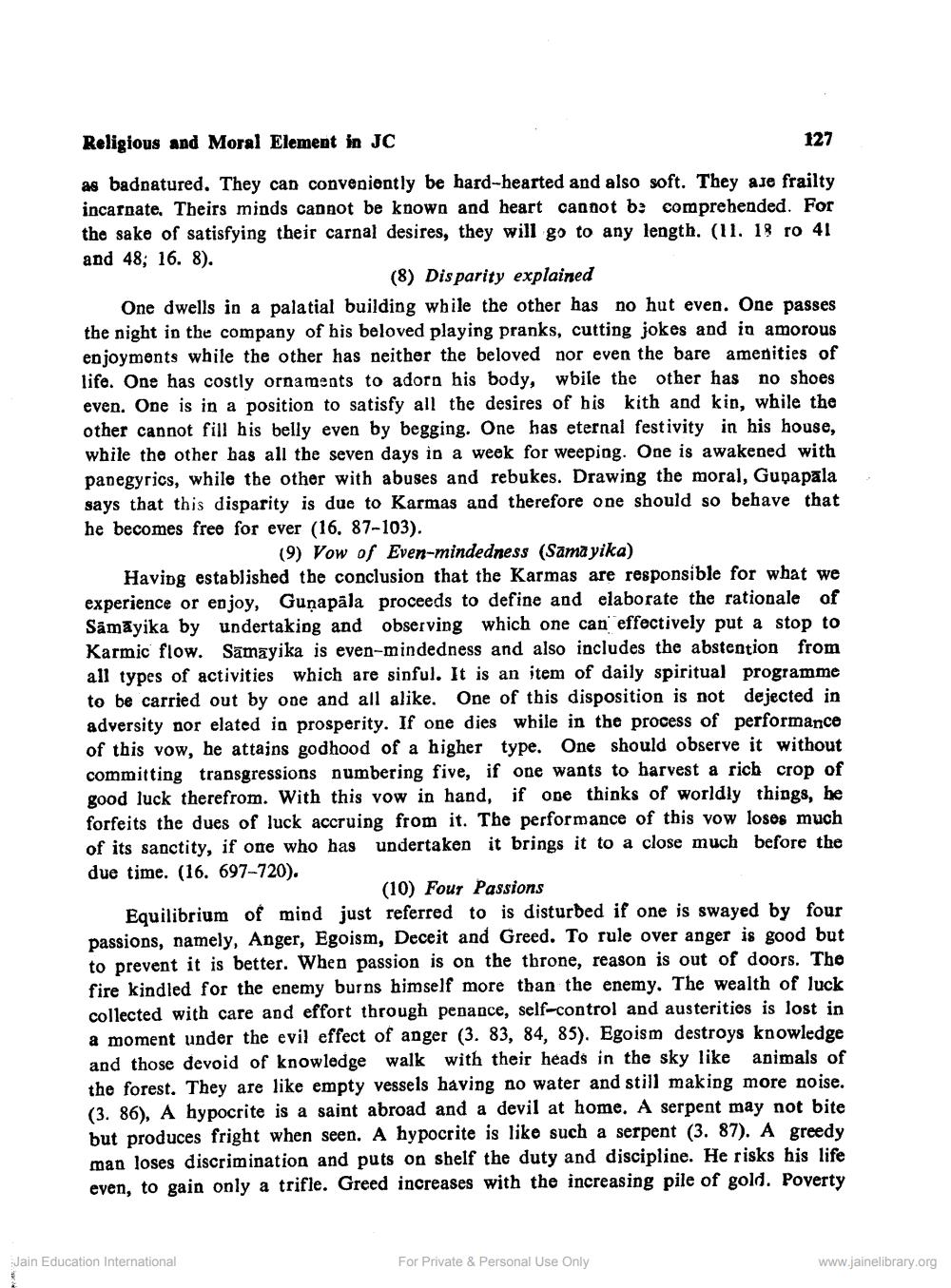________________
Religious and Moral Element in JC
127
as badnatured. They can conveniently be hard-hearted and also soft. They ase frailty incarnate. Theirs minds cannot be known and heart cannot be comprehended. For the sake of satisfying their carnal desires, they will go to any length. (11. 19 ro 41 and 48; 16. 8).
(8) Dis parity explained One dwells in a palatial building while the other has no hut even. One passes the night in the company of his beloved playing pranks, cutting jokes and in amorous enjoyments while the other has neither the beloved nor even the bare amenities of life. One has costly ornaments to adorn his body, wbile the other has no shoes even. One is in a position to satisfy all the desires of his kith and kin, while the other cannot fill his belly even by begging. One has eternal festivity in his house, while the other has all the seven days in a week for weeping. One is awakened with panegyrics, while the other with abuses and rebukes. Drawing the moral, Gunapala says that this disparity is due to Karmas and therefore one should so behave that he becomes free for ever (16. 87-103).
(9) Vow of Even-mindedness (Sama yika) Having established the conclusion that the Karmas are responsible for what we experience or enjoy, Guņapāla proceeds to define and elaborate the rationale of Sāmāyika by undertaking and observing which one can effectively put a stop to Karmic flow. Samayika is even-mindedness and also includes the abstention from all types of activities which are sinful. It is an item of daily spiritual programme to be carried out by one and all alike. One of this disposition is not dejected in adversity nor elated in prosperity. If one dies while in the process of performance of this vow, he attains godhood of a higher type. One should observe it without committing transgressions numbering five, if one wants to harvest a rich crop of good luck therefrom. With this vow in hand, if one thinks of worldly things, he forfeits the dues of luck accruing from it. The performance of this vow losos much of its sanctity, if one who has undertaken it brings it to a close much before the due time. (16. 697-720).
(10) Four Passions Equilibrium of mind just referred to is disturbed if one is swayed by four passions, namely, Anger, Egoism, Deceit and Greed. To rule over anger is good but to prevent it is better. When passion is on the throne, reason is out of doors. The fire kindled for the enemy burns himself more than the enemy. The wealth of luck collected with care and effort through penance, self-control and austerities is lost in a moment under the evil effect of anger (3. 83, 84, 85). Egoism destroys knowledge and those devoid of knowledge walk with their heads in the sky like animals of the forest. They are like empty vessels having no water and still making more noise. (3. 86), A hypocrite is a saint abroad and a devil at home. A serpent may not bite but produces fright when seen. A hypocrite is like such a serpent (3. 87). A greedy man loses discrimination and puts on shelf the duty and discipline. He risks his life even, to gain only a trifle. Greed increases with the increasing pile of gold. Poverty
Jain Education International
For Private & Personal Use Only
www.jainelibrary.org




